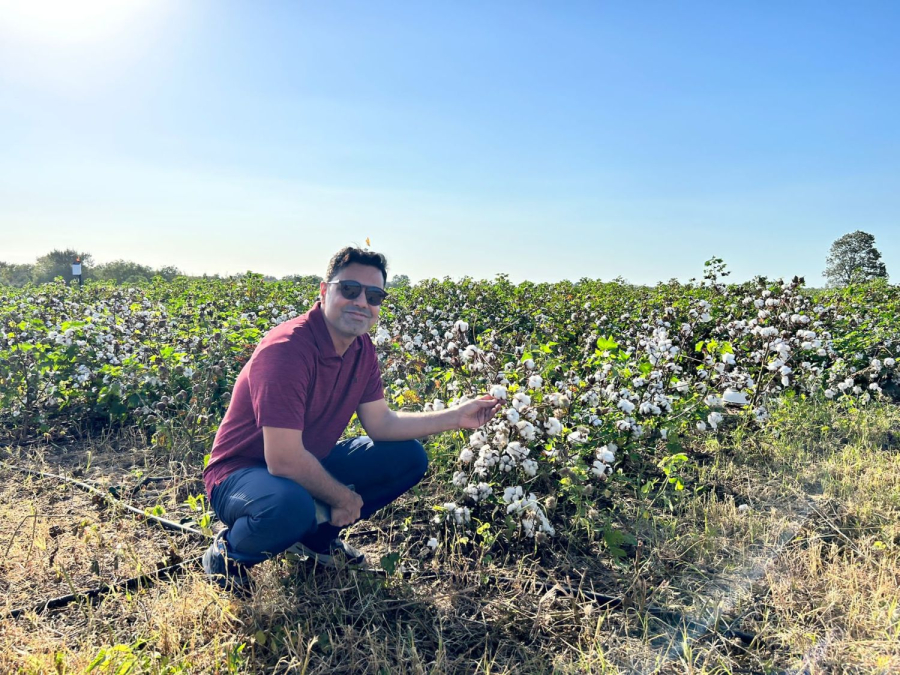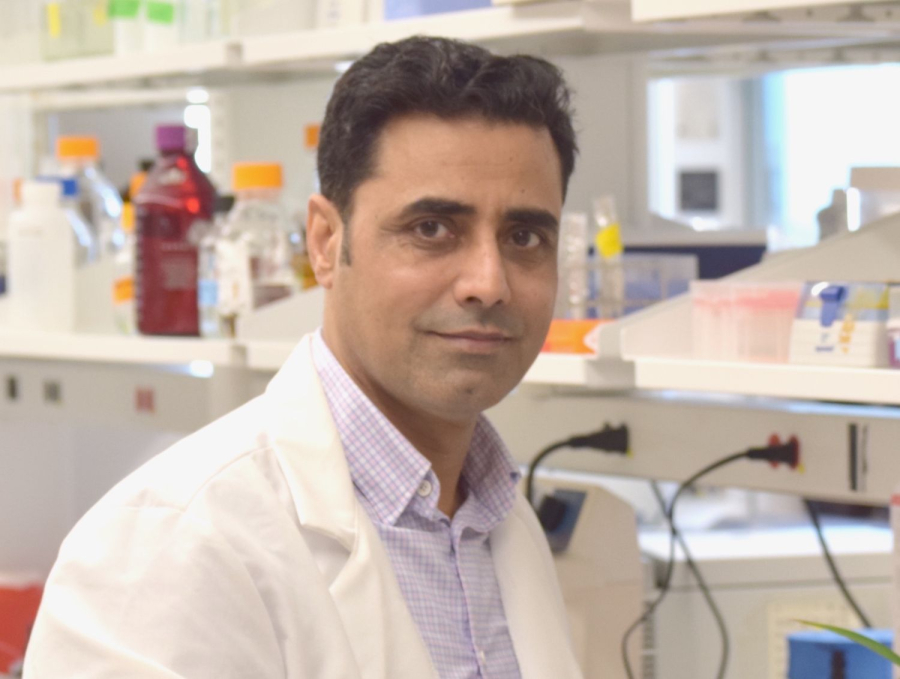Abdul Latif Khan, an assistant professor in the Cullen College of Engineering's Technology Division's Department of Engineering Technology, has received a research grant from the USDA to purchase instruments that will allow for the real-time monitoring of photosynthesis.
The grant is for $71,300. The instruments will allow researchers to monitor and record a given plant's photosynthetic processes in real-time, providing an inside look into the potential of plant health and growth. This is crucial in the fight against food insecurity and successes in agricultural productivity as climate change continues to impact their production.
Also contributing to the project are co-principal investigator associate professor of biology and biochemistry Kerri Crawford and associate professor of biotechnology Albert Flavier.
Photosynthesis – the process through which a plant uses sunlight, carbon dioxide, and water to generate energy or glucose – is essential to the growth, development and nutrient content of all plants. As plants photosynthesize, they remove carbon dioxide – a greenhouse gas – from the atmosphere. In return, they release oxygen back.
As global populations increase and industrialization continues to change the face of our climate landscape, plants are struggling to keep pace. Crops don't yield what they once did, and keeping both them and the atmosphere healthy and thriving can be a challenge.
"In a particular geographical region, a drought may be expected to come after 5 to 10 years of wet weather, but now we have seen some areas reduce that to almost an annual basis," Khan said. "At the same time, the expected length and severity of this particular stress has also increased. If we used to see drought conditions that lasted one or two weeks in areas growing food crops, we now see them lasting for a month or two or more. These changes are hurting our food crop production and have many global scientists thinking about ways we can better understand our food production system for the future."
These crop losses due to drought and other unfavorable conditions not only put food supplies at risk – they can be economically devastating to the farmers that grow them. That's why Khan and his team are working to find new ways to improve food crop resilience. They aren't just looking at leaves, though. The soil tells an important story, too.
"One of our projects is crop plant-microbe interaction. We test the different microorganisms that are associated with root region – the rhizosphere – in our crop plants,” Khan said. “As climates change, these microorganisms in the soils also change. Plants recruit specific microorganisms for specific purposes. If there is a drought stress going on, roots will recruit specific kinds of microorganisms that help the plant to defend itself from low moisture levels.”
These microorganisms play a large role in helping plants survive and thrive in stressful growing conditions, but they aren't a magic wand.
"If unfavorable conditions last for just three to five days, then these microorganisms can help improve the resistance of plants against the stress. But as that stretches to weeks, then the microorganisms – as well as the plant itself – cannot cope," Khan said.
Just as some humans may benefit from probiotic supplements, Khan's lab is working on the development of "synthetic microbiomes" – collections of microorganisms that can give struggling plants an extra boost from the ground up. The portable photosynthesis instruments will then allow observers to monitor the plant's photosynthetic response after being treated with these new microbes, with the goal being to increase growth and metabolism even when conditions seem unfavorable. It's another important step in the race against climate change, but it won't be the only one.
"We have to change ourselves to avoid climate change," Khan said. "We really have to think about the way we are living and producing food and consider going back to some of the more natural ways of our forebears. Future generations will still need these natural resources available to continue living healthy lives. The soil here on Earth is a precious commodity. No other planet has soil like this, and it took millions of years to get to this point. “We must use ecologically friendly farming practices to grow food crops. Using these instruments, we will monitor climate-change impacts on the photosynthesis process of economically important crop foods."

